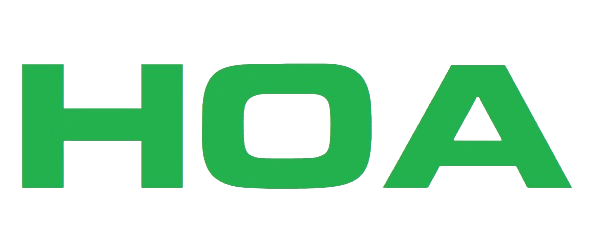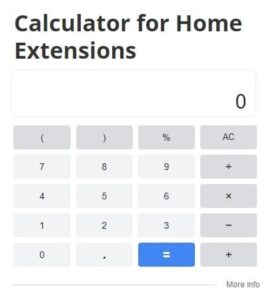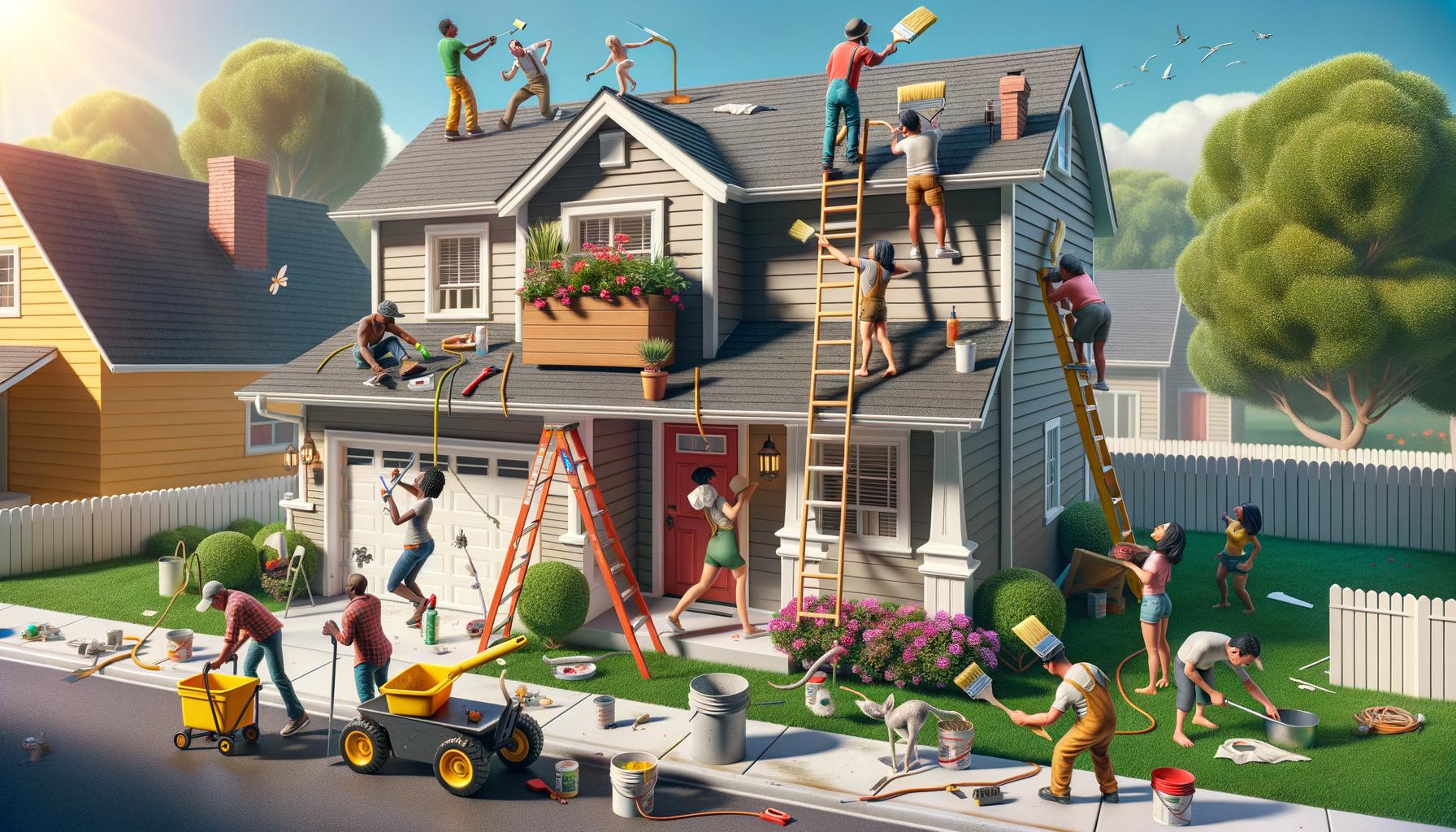
At Home Owners Association, we’ve seen countless homeowners face costly repairs due to common home maintenance mistakes. These oversights can lead to significant damage and decreased property value over time.
In this post, we’ll explore the most frequent maintenance errors and provide practical tips to avoid them. By understanding these pitfalls, you can protect your investment and ensure your home remains comfortable and efficient for years to come.
Why Regular Inspections Matter
Regular inspections form the foundation of effective home maintenance. We’ve observed how the neglect of these essential checks leads to severe consequences for homeowners across Australia.
The Hidden Dangers of Roof and Gutter Neglect
Your roof and gutters act as your home’s primary defense against the elements. When you skip regular checks, you risk undetected leaks that may cause extensive water damage. Natural disasters have caused more than $34b in insurance claims since 2010, with flooding accounting for 38% of these claims. A simple inspection twice a year can prevent costly repairs in the future.
HVAC Maintenance: Beyond Comfort
Your HVAC system affects more than just comfort; it impacts your wallet too. HVAC systems typically account for approximately 40% of total building consumption and 70% of base building consumption. Regular servicing ensures efficient operation and extends the life of your system (potentially saving thousands in premature replacement costs).
Plumbing Problems: The Silent Home Destroyer
When you overlook plumbing inspections, you invite disaster. Sydney Water states that a small leak can waste up to 250 liters of water per day. The real danger, however, lies in what you can’t see. Hidden leaks cause structural damage, mold growth, and even compromise your home’s foundation. Annual plumbing checks are vital to catch these issues early.
The Costly Consequences of Pest Infestations
Failure to check for pests leads to extensive damage. The CSIRO reports that termites alone cause over $1 billion in damage to Australian homes each year. Regular pest inspections (ideally every 6-12 months) can save you from this expensive and stressful ordeal.
The Value of Proactive Maintenance
A regular inspection schedule protects your investment. When you address these areas proactively, you avoid the stress and financial burden of major repairs. Prevention always costs less than cure in home maintenance.
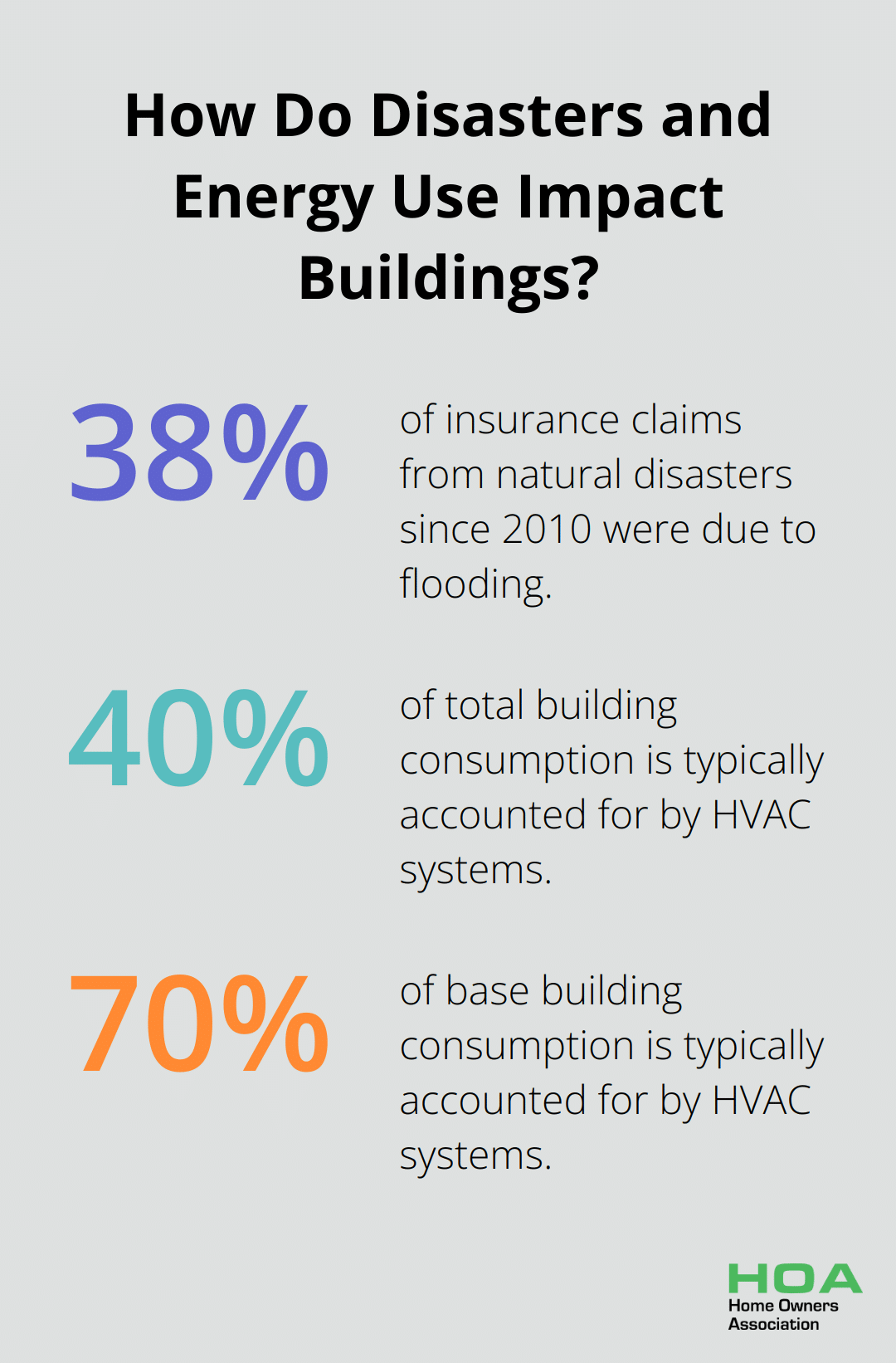
As we move forward, let’s explore another critical aspect of home care: the pitfalls of improper DIY repairs and renovations. This area often tempts homeowners to cut corners, but the consequences can be severe.
The DIY Danger Zone: Avoiding Common Home Repair Pitfalls
At Home Owners Association, we have observed numerous DIY disasters that homeowners could have easily avoided. While the desire to save money on home repairs is understandable, improper DIY work often leads to costly consequences and safety hazards.
Electrical Work: A High-Voltage Risk
Attempting electrical work without proper knowledge poses extreme dangers. A study found that deaths occurring as a result of electrical injury were uncommon with 162 cases in a four-year period between 2001 and 2004, with 93% being male. Homeowners should hire a licensed electrician for any electrical work beyond simple tasks like changing a light bulb. The cost of professional service is insignificant compared to the potential risks of DIY electrical work.
Material Matters: Choosing the Right Tools for the Job
Using incorrect materials for repairs is a common and expensive mistake. For example, applying indoor paint to exterior surfaces can result in rapid deterioration and frequent repainting needs. Higher-quality paints often require fewer coats and last longer. Homeowners should invest in quality materials suited for the specific job to ensure longevity and avoid frequent repairs.
Code Compliance: More Than Just Bureaucracy
Overlooking building codes and permits is a serious error with long-lasting consequences. The Australian Building Codes Board emphasizes that building codes exist to ensure the safety, health, and amenity of people in buildings. Failure to obtain proper permits can result in fines, forced removal of non-compliant work, and complications when selling your property. Homeowners should always check with their local council before starting any significant renovation project.
Safety First: Protecting Yourself During Renovations
Neglecting safety precautions during renovations puts homeowners and their families at risk. SafeWork Australia reports that the construction industry has one of the highest rates of workplace injuries. When undertaking DIY projects, homeowners should always use appropriate personal protective equipment (PPE) such as safety glasses, gloves, and dust masks. For major renovations, consider hiring professionals who are trained in safety protocols and have the necessary insurance coverage.
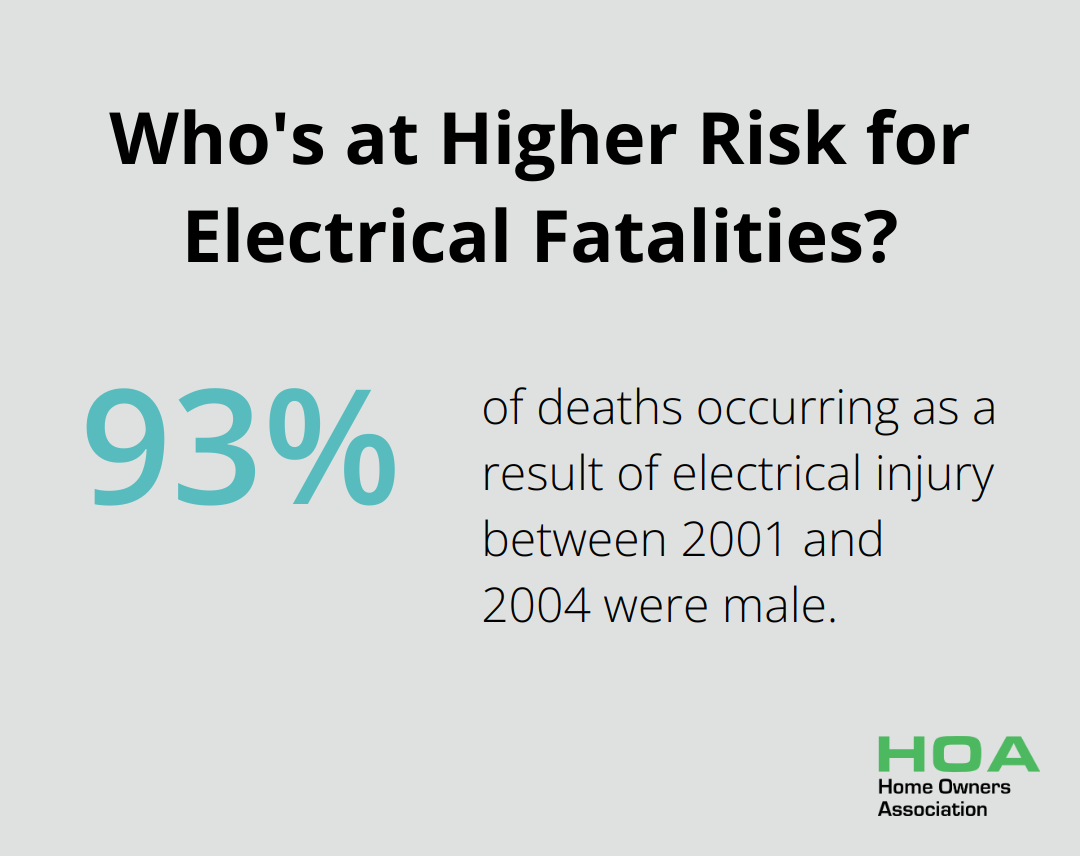
DIY projects can be rewarding, but they’re not always the most cost-effective or safe option. Home Owners Association encourages its members to leverage our network of trusted professionals for complex repairs and renovations. This approach ensures quality work, compliance with regulations, and most importantly, your safety.
As we move forward, let’s explore another critical aspect of home maintenance: energy efficiency opportunities. Many homeowners overlook these simple yet effective ways to reduce their environmental impact and save money on utility bills.
Maximizing Energy Efficiency at Home
At Home Owners Association, we notice that many homeowners overlook simple yet effective ways to boost their home’s energy efficiency. This oversight impacts the environment and leads to unnecessarily high utility bills. Let’s explore some practical steps you can take to make your home more energy-efficient and cost-effective.
Upgrade to Energy-Efficient Appliances
Replacing old appliances with energy-efficient models can significantly reduce your energy consumption. Find and compare the star ratings and running costs for Energy Rating Labelled appliances to see how much you can save by choosing an energy-efficient appliance. When you shop for new appliances, always check the energy rating label. The initial investment in high-efficiency appliances often pays for itself through lower energy bills over time.
Improve Insulation
Inadequate insulation wastes energy. Insulation is a material that resists or blocks the flow of heat energy. It is used to stop heat inside the home from escaping in winter. Focus on insulating your roof, walls, and floors. Don’t forget about weatherstripping around doors and windows to prevent drafts. These simple measures can lead to substantial savings on your heating and cooling costs.
Change HVAC Filters Regularly
Many homeowners underestimate the importance of regular HVAC maintenance. A dirty filter forces your system to work harder, increasing energy consumption and reducing air quality. Try to check your filters monthly and replace them at least every three months. Proper HVAC maintenance can reduce energy costs by up to 40%.
Conserve Water
Water efficiency is often overlooked in energy discussions, but it’s important for both environmental and financial reasons. Installing water-efficient fixtures can make a significant difference. Consider installing low-flow showerheads, dual-flush toilets, and water-efficient washing machines to reduce your water consumption (and associated energy costs for water heating).
Utilize Smart Home Technology
Smart home devices can help you monitor and control your energy usage more effectively. Smart thermostats, for example, can learn your habits and automatically adjust temperature settings for optimal efficiency. Smart power strips can cut power to devices when they’re not in use, eliminating standby power consumption.
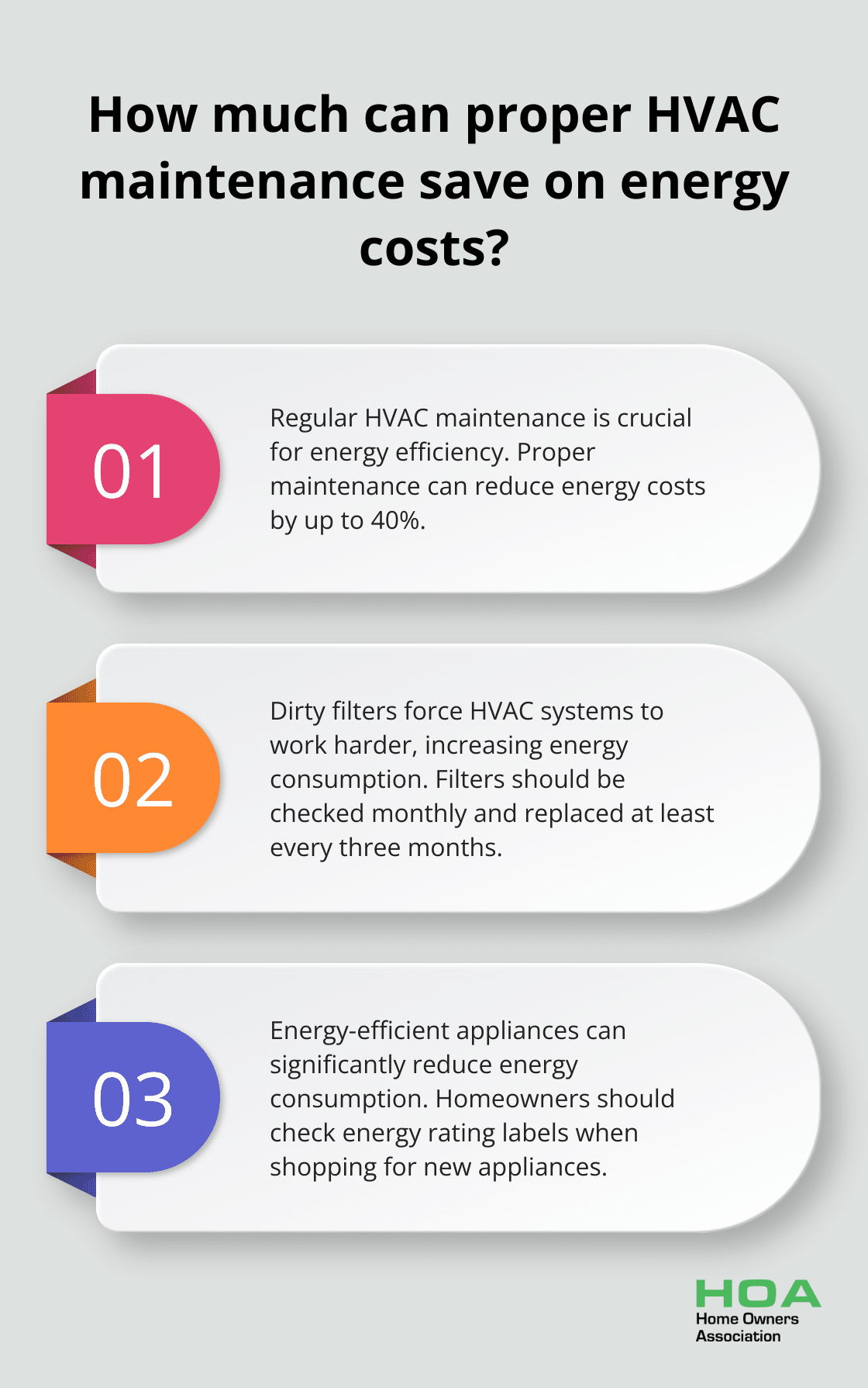
Final Thoughts
Home maintenance mistakes can lead to significant consequences for homeowners. These oversights often result in costly repairs, decreased property value, and compromised comfort. Regular maintenance prevents many issues we’ve discussed, and scheduling routine inspections for critical systems can catch potential problems early.
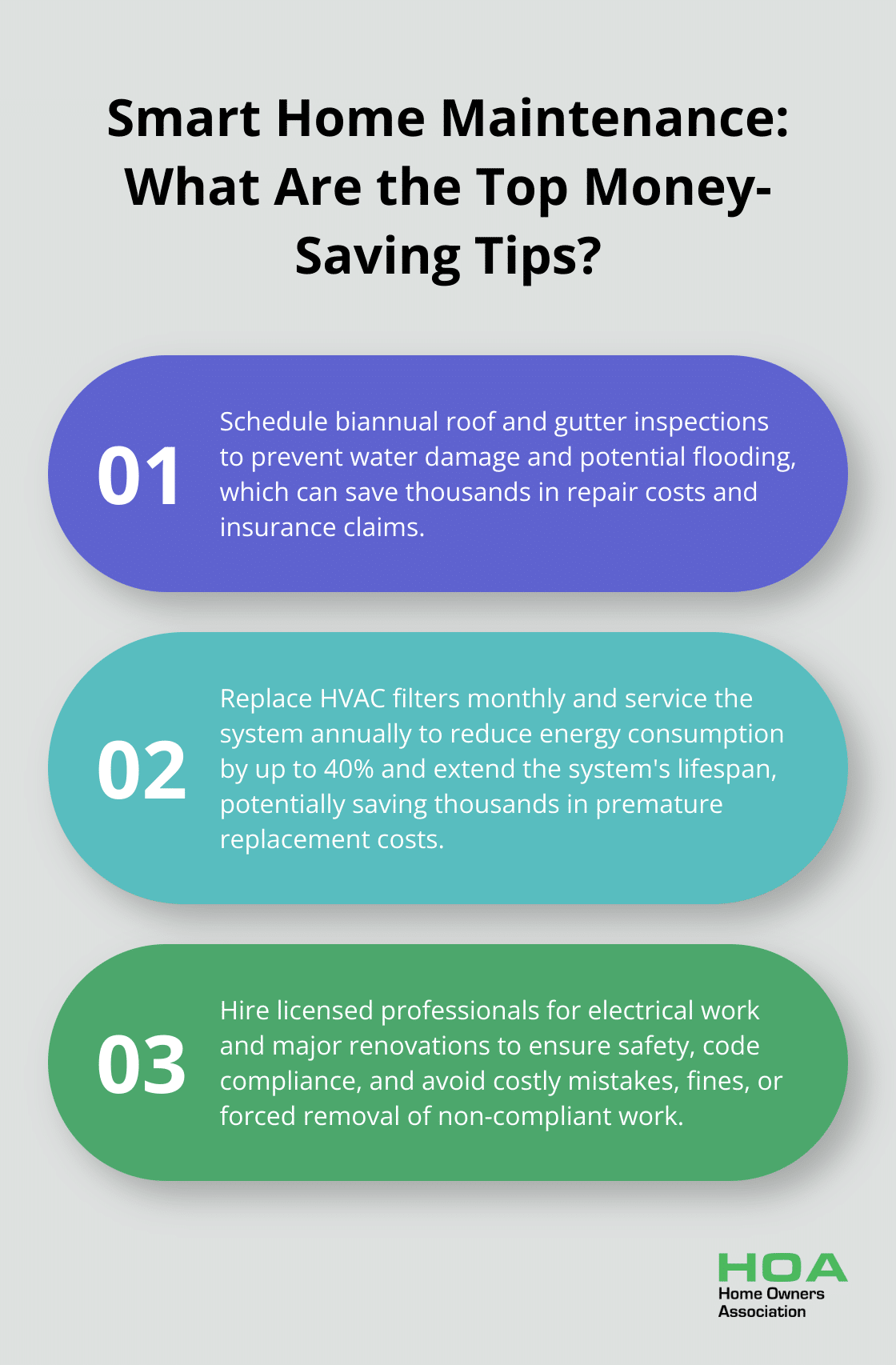
For complex tasks or renovations, professional help is often the wisest choice. Home Owners Association provides members with access to trusted professionals who ensure work is done safely, efficiently, and in compliance with local regulations. A well-maintained home retains its value better, provides a more comfortable living environment, and can contribute to lower energy bills.
Homeownership is a journey, and Home Owners Association supports you throughout. We offer exclusive discounts on materials and expert advice tailored to Melbourne’s unique housing market. Our goal is to empower you to make informed decisions about your home (and avoid common maintenance pitfalls).




